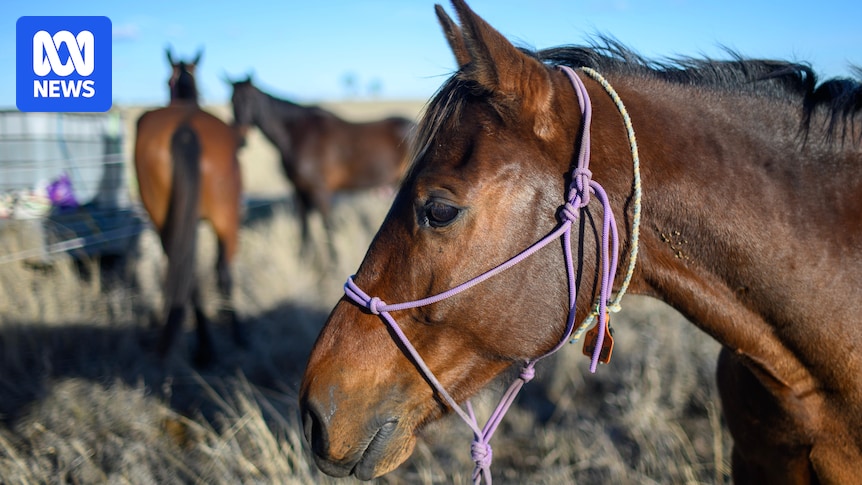A rare neurological form of equine herpesvirus that can cause pregnant mares to abort foals is detected around Townsville and Toowoomba.
Why it matters
- The detection of a rare neurological strain of equine herpesvirus poses significant risks to equine health, particularly among pregnant mares.
- The outbreak could lead to increased abortion rates in pregnant horses, affecting breeders and the equine industry in Queensland.
- This situation emphasizes the need for vigilance and biosecurity measures among horse owners and facilities in the affected areas.
In a concerning development for horse owners and breeders in Queensland, a rare neurological variant of equine herpesvirus type 1 (EHV-1) has been identified in the regions surrounding Townsville and Toowoomba. This strain is especially troubling as it has been linked to late-term abortions in pregnant mares, raising alarms within the equestrian community about the potential ramifications for horse health and breeding operations.
Equine herpesvirus is a highly contagious virus that affects horses, causing a range of symptoms from mild respiratory issues to severe neurological complications. The neurological form of EHV-1 is particularly dangerous as it can lead to sudden onset of neurological signs, including paralysis and, in some cases, death. However, the recent detection of this strain is especially concerning due to its direct implications for pregnant mares, who are at risk of losing their foals during critical stages of gestation.
The Queensland Department of Agriculture and Fisheries (QDAF) has confirmed that the virus was detected in several horses in the affected areas. Testing and monitoring are being conducted to assess the spread and impact of the virus. Authorities are urging horse owners to be on high alert, particularly those with pregnant mares, and to adopt stringent biosecurity measures to prevent further transmission of the virus.
Horse owners are advised to monitor their animals closely for any signs of illness, including fever, lethargy, and neurological symptoms. Vaccination against EHV-1 is also recommended, although it is important to note that the vaccine does not prevent the neurological form of the virus. Nonetheless, vaccination can reduce the severity of the disease and help protect healthy horses from the respiratory form of EHV-1.
The outbreak has raised significant concerns among breeders, with many now facing difficult decisions regarding their breeding programs. The potential for increased abortion rates could have far-reaching consequences not only for individual horse owners but also for the wider equine industry in Queensland. Breeding operations rely heavily on the health of their mares, and any spike in abortion rates could impact the availability of foals and yearlings for sale.
In light of this outbreak, local equine veterinarians are ramping up their outreach efforts, providing information and resources to horse owners about the risks associated with equine herpesvirus. Educational materials on best practices for biosecurity are being distributed, and clinics are being scheduled to address specific concerns related to the virus. Moreover, veterinarians are encouraging horse owners to establish isolation protocols for any new horses entering their facilities, as well as for those that may show signs of illness.
The Queensland horse community is also being urged to cooperate with local authorities to report any suspected cases of EHV-1. Early detection and reporting are vital in controlling the outbreak and preventing it from spreading further. Horse owners are reminded that they play a crucial role in safeguarding their animals and the broader equine population by being proactive in monitoring their horses and implementing necessary precautions.
This outbreak comes during a time when the equine industry is already facing various challenges, including the impacts of recent droughts and economic pressures. The added threat of equine herpesvirus is a stark reminder of the vulnerabilities that exist within the industry. As Queensland grapples with this unfolding situation, the focus remains on protecting horse health and ensuring the welfare of pregnant mares and their foals.
In summary, the detection of this rare neurological strain of equine herpesvirus in Queensland highlights a significant risk to pregnant mares, prompting urgent calls for heightened awareness and robust biosecurity measures among horse owners. The situation serves as a critical reminder of the importance of vigilance and preparedness in the equine community, as the health of these animals is paramount to the industry’s sustainability.











